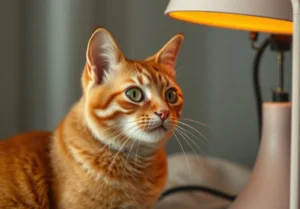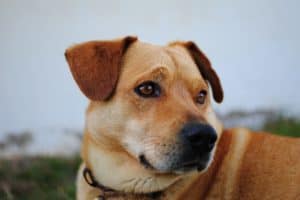Cats can be mysterious creatures, exhibiting strange behaviors that leave many pet owners scratching their heads. One such behavior is panting, especially in the morning. Have you ever wondered why your feline friend pants in the early hours of the day? Let’s unravel the mystery behind this peculiar habit.
Cats pant in the morning due to a combination of factors such as exercise, stress, or heat. Panting helps them cool down and regulate their body temperature, similar to how dogs pant.
Does Exercise Play a Role in Morning Panting?
If you wake up to find your furry friend panting in the morning, it could be due to their nightly exercise routine. Just like us humans, cats need to get their bodies moving to stay healthy and active. Those late-night zoomies and play sessions can leave your cat feeling a bit winded come morning.
To help reduce morning panting caused by exercise, try engaging your cat in more active play during the day. This can help burn off excess energy and prevent them from overexerting themselves at night. Additionally, providing interactive toys and regular exercise opportunities throughout the day can help keep your feline friend fit and pant-free in the morning.
What Role Does Stress Play in Cat Panting?
Stress and anxiety can also play a significant role in causing your cat to pant, especially in the morning when they may be feeling a bit overwhelmed. Cats are creatures of habit, and any changes to their routine or environment can trigger feelings of stress and anxiety. This can lead to panting as a physical manifestation of their emotional distress.
If you notice your cat panting in the morning, take a closer look at their surroundings and daily routine. Are there any recent changes that could be causing them stress? Providing a calm and stable environment, along with plenty of hiding spots and comforting items like blankets or toys, can help alleviate stress and reduce morning panting.
Remember, every cat is unique, so it’s essential to observe your furry friend’s behavior and make adjustments to their environment as needed to keep them happy and healthy.
Additional Insight:
– Proper hydration: Make sure your cat has access to fresh water at all times, as dehydration can contribute to panting. Consider adding a water fountain or providing wet food to increase their water intake.
How Does Heat Contribute to Morning Panting?
Cats pant in the morning as a way to regulate their body temperature, especially when it’s warm. Cats don’t sweat like humans do, so panting helps them cool down. If you notice your furry friend panting in the morning, it might be a sign that they’re trying to beat the heat. Make sure to provide plenty of fresh water and a cool place for your cat to relax during the hot summer months to prevent excessive panting.
Can Health Issues Cause Morning Panting?
Sometimes, panting in the morning can be a sign of underlying health issues in cats. Respiratory problems, heart conditions, and even obesity can cause cats to pant. If your cat’s panting seems excessive or out of the ordinary, it’s essential to consult with your veterinarian to rule out any health concerns. Regular check-ups and maintaining a healthy weight can help prevent these issues and ensure your cat stays happy and healthy.
Additional Unique Insight: Signs of Stress
In some cases, morning panting in cats can also be a sign of stress or anxiety. Changes in routine, loud noises, or new environments can trigger stress in cats, leading to panting as a coping mechanism. If you suspect that your cat’s morning panting is due to stress, try to identify and address the source of stress to help your feline friend feel more comfortable and relaxed. Seeking advice from a professional behaviorist can also be beneficial in managing your cat’s stress levels.
What Can You Do to Help a Panting Cat?
If you notice your cat panting excessively in the morning, there are some things you can do to help them out. First and foremost, make sure they have access to a cool and well-ventilated area. Cats can quickly overheat, especially when they’re panting. Offer them plenty of fresh water to stay hydrated. Try to keep them calm and avoid stressing them out. If the panting persists or if you notice any other concerning symptoms, it’s best to consult your veterinarian for further guidance.
Are There Breeds More Prone to Morning Panting?
While any cat can pant in the morning due to various reasons, certain breeds may be more prone to this behavior. Breeds with thick coats or breeds that are more active may experience panting more frequently. For example, Persian cats with their luxurious long fur may find it harder to regulate their body temperature. Similarly, breeds like Siamese or Bengal cats, known for their high energy levels, may pant more after a rigorous play session. If you have a cat from one of these breeds, pay extra attention to their behavior in the morning to ensure they stay comfortable and healthy.
Useful Insight : Maine Coon cats, known for their large size and thick fur, can also be prone to morning panting. Their majestic coats, while beautiful, can make it challenging for them to cool down efficiently. Be mindful of this breed’s special needs, especially in warm weather.
Remember, always prioritize your cat’s well-being and look for any signs of distress or discomfort.
How Does Panting Differ Between Cats and Dogs?
When it comes to panting, cats and dogs have distinct differences in behavior. While dogs pant more frequently to regulate their body temperature, cats do not rely on panting as their primary method of cooling down. Instead, cats typically pant less often because they have a more efficient respiratory system than dogs. This allows cats to control their body temperature through other means, such as grooming and finding cooler spots to relax.
One interesting fact to note is that cats can also pant due to stress, fear, or anxiety, in addition to overheating. So, if you notice your cat panting excessively in the morning, it could be a sign that something is causing them distress and may warrant further investigation.
Interesting Facts About Cat Panting
Panting as a Sign of Illness : Excessive panting in cats can be a red flag for underlying health issues such as heart problems, respiratory infections, or even heatstroke. If your cat is panting heavily in the morning or at any other time, it’s essential to consult your veterinarian for a thorough evaluation.
No Sweat Glands : Unlike humans, cats do not have sweat glands all over their bodies. Instead, they sweat through their paws, which is why they may pant more when trying to cool down.
Panting in Kittens : While adult cats may pant occasionally, it is more common in kittens. This is because kittens have an underdeveloped respiratory system, making them more prone to panting, especially during play or vigorous activity.
For more information on interpreting cat behavior, you can refer to reputable sources like the American Humane Society’s guide on cat health and behavior.
The Relationship Between Panting and Sleeping Habits
Have you ever noticed your furry friend panting in the morning and wondered why? Well, one possible reason could be related to their sleeping habits. Cats are known for their unique sleep patterns, often snoozing throughout the day and night in short bursts. This erratic sleeping schedule can sometimes lead to a restless night’s sleep, causing them to pant in the morning as a way to regulate their body temperature and catch their breath.
Additionally, certain factors like excessive heat or stress can disturb a cat’s sleep, leading to panting as they try to cool down or relax after a tiring night. So, if your feline companion is panting in the morning, consider evaluating their sleep environment and routine to ensure they are getting the rest they need to stay healthy and comfortable.
Tips for Improving Your Cat’s Sleeping Habits:
- Create a cozy and quiet sleep environment for your cat.
- Establish a regular bedtime routine to help them unwind.
- Provide plenty of mental and physical stimulation during the day to promote restful sleep at night.
Remember, understanding your cat’s unique sleeping habits can help alleviate any panting issues they may experience in the morning.
Unique Insight: Panting as a Sign of Stress
In some cases, panting in the morning could also be a sign of stress or anxiety in cats. Just like humans, cats can experience stress from various sources, such as changes in their environment, new pets in the household, or loud noises. This stress can disrupt their sleep patterns, leading to panting as a physical manifestation of their emotional turmoil. If you notice your cat panting frequently in the morning, it may be worth exploring potential sources of stress and finding ways to help them feel more at ease.
Alex, a passionate animal lover, has experience in training and understanding animal behavior. As a proud pet parent to two dogs and three cats, he founded AnimalReport.net to share insights from animal experts and expand his knowledge of the animal kingdom.




